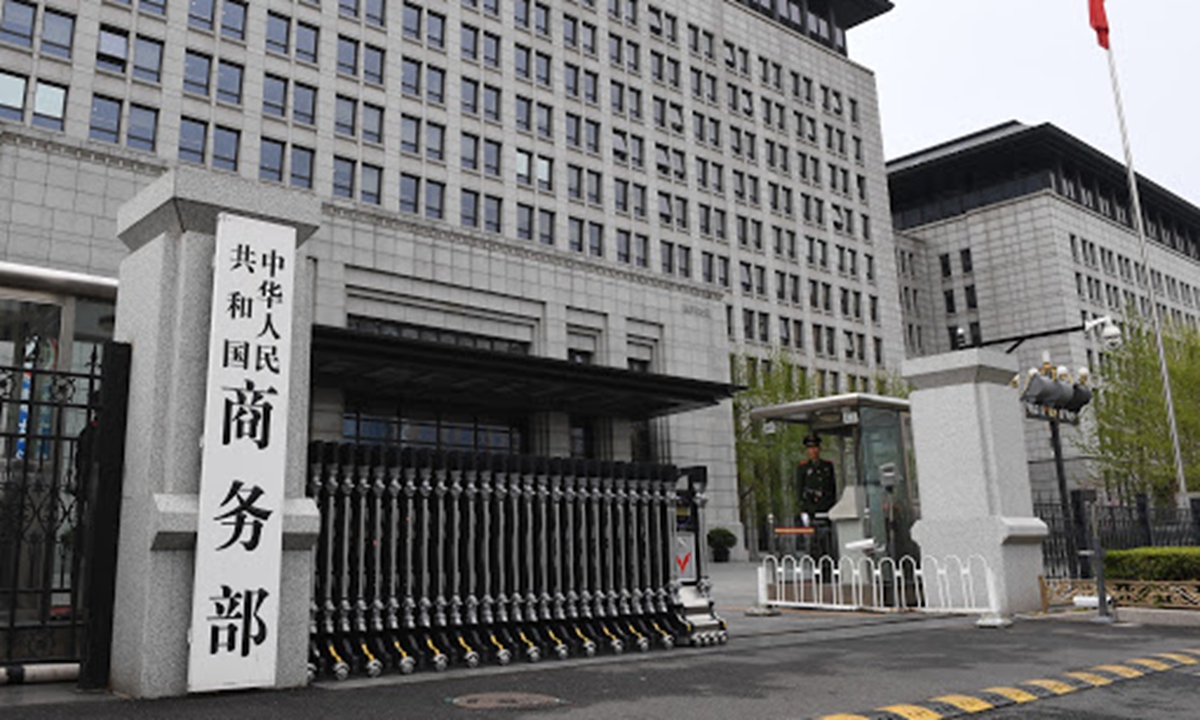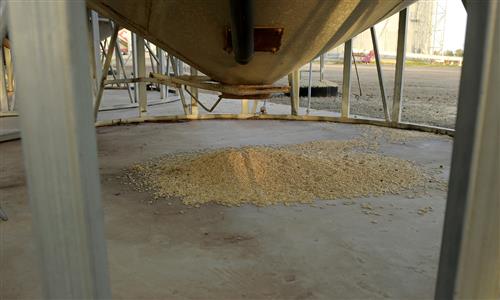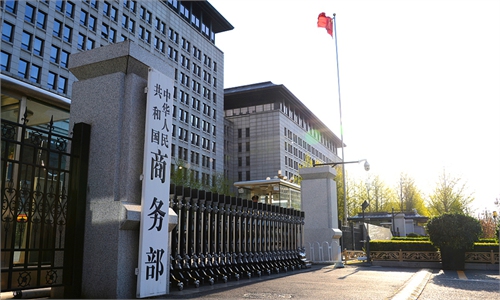China to conduct expiry review on anti-dumping measures on imported chlorobutyl rubber from US, EU, UK, Singapore
Trade remedy helps safeguard domestic industry: expert

Ministry of Commerce
The Chinese Ministry of Commerce (MOFCOM) said on Wednesday that it will conduct a one-year expiry review of anti-dumping tariffs imposed on imported chlorobutyl rubber from the US, the EU, the UK and Singapore starting from August 20, with the tariffs to remain unchanged during the probe.
The review will examine whether stopping the remedy measures will lead to future dumping activity or any damage, the MOFCOM said in a statement on its website.
In 2018, China imposed anti-dumping tariffs on imported chlorobutyl rubber from the US, the EU, the UK and Singapore. The rates were set at 75.5 percent from the US, 27.4-71.9 percent for the EU and 23.1-45.2 percent for Singapore. Goods from the UK faced a 71.9 percent rate.
The remedy measures were set for five years and are due to expire on August 20.
Chlorobutyl rubber is used in making tires, medicinal bottle stoppers and various adhesives.
Companies including US' Exxon Mobil, Belgium-based ARLANXEO Belgium NV, UK-based ExxonMobil Chemical and Singapore-based ARLANXEO SINGAPORE are affected by the tariffs.
The ministry said it received an application on June 19 from Zhejiang Cenway New Materials Co, based in East China's Zhejiang Province, requesting an expiry review assessing the impact of the termination of the remedy. The request was supported by another Chinese company in East China's Shandong Province.
The two companies requested that the existing trade remedy measures stay in place during the course of the review.
The MOFCOM said it decided that the applications are valid and it will begin the review on August 20.
The Customs Tariff Commission of the State Council, on the recommendation of the MOFCOM, announced that current tariffs on chlorobutyl rubber will be maintained during the review.
Experts said that while anti-dumping measures are a normal trade remedy to protect relevant industries, the move showed China is actively protecting own interests under the framework of the WTO.
Li Yong, a senior research fellow at the China Association of International Trade, told the Global Times on Wednesday that the measures taken by the ministry are justified and in accordance with the WTO rules, and they reflected China's determination to defend its domestic industries from dumping of foreign products.
The announcement came after Monday's announcement by the ministry on anti-dumping measures on polycarbonate imports from Taiwan island, after a months-long probe found that dumping of polycarbonate had harmed industries on the Chinese mainland.
"Currently, the domestic market faces a supply glut and the continuous dumping of foreign products at low prices will cannibalize the market share of domestic companies, leading to their failure," Xu Min, a rubber analyst at domestic commodity information website 315i.com, told the Global Times.
Xu noted that the trade remedy measures stand to prevent a looming price war in the sector.
However, while the move was not directly targeted at the US, some analysts believe the investigation is connected with the current political situation.
When China first announced new tariffs on rubber in 2018, some media outlets interpreted the move as a tit-for-tat action for the US imposing tariffs on Chinese aluminum.
Wu Chenhui, an independent industry analyst, told the Global Times on Wednesday that links to the trade war could not be excluded.
"The US has frequently launched assaults on China, and it's fair to say the move is connected with broad US-led containment against China," Wu said.
Xu said that the probe announced on Wednesday is a continuation of anti-dumping duties imposed five years ago, and connections to China-US relations are "loose but existing."
The MOFCOM said that the review should be completed before August 20, 2024.


